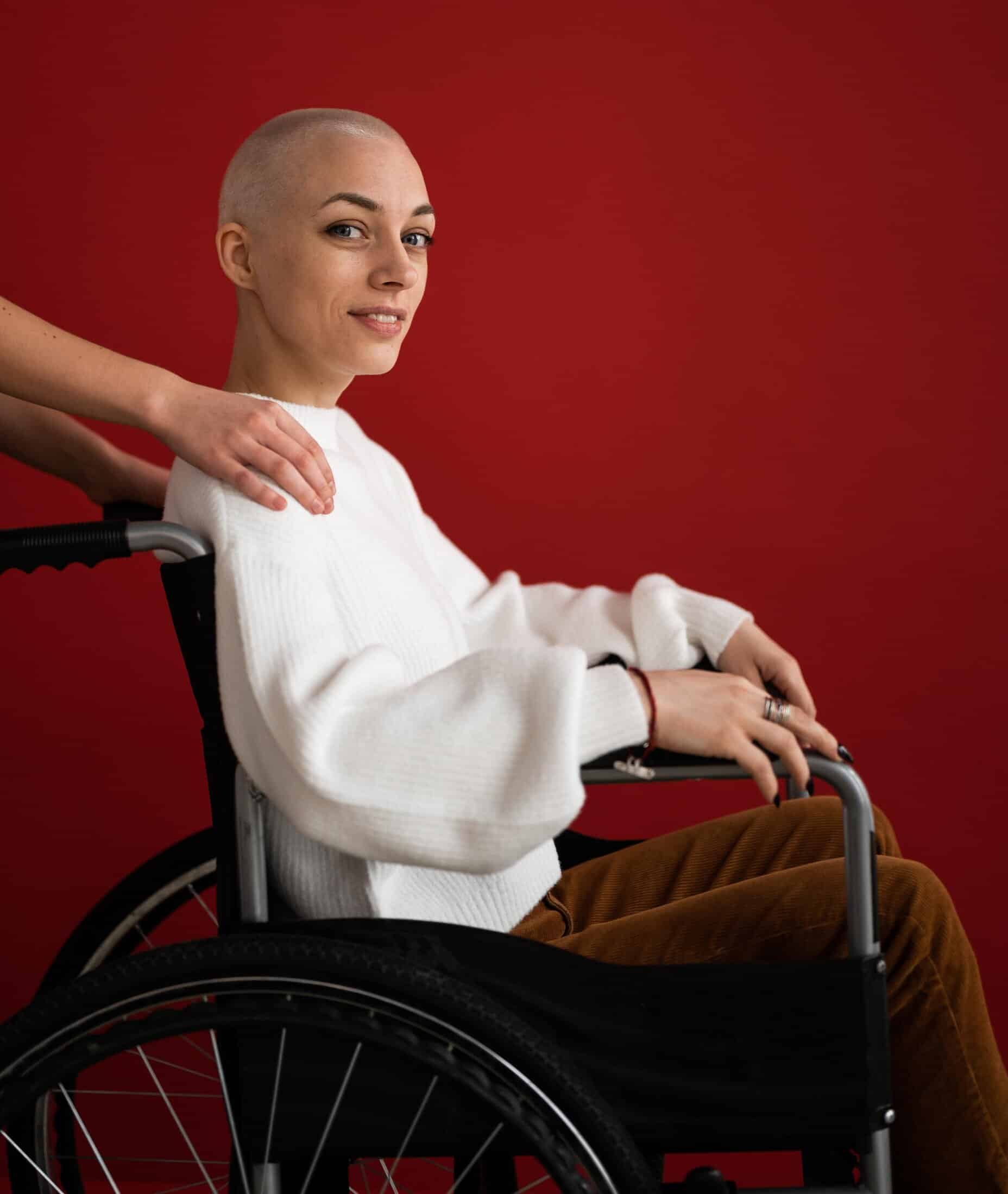
At DisabilityPlus, we offer a truly unique and empathetic approach to spinal cord injury counselling led by highly qualified psychologists who personally understand the challenges and complexities of living with a spinal cord injury.
This personal experience equips our psychologists with unparalleled insight and empathy, ensuring that every session is grounded in genuine understanding and tailored support.
We are proud to offer both self-paid and free funding options for our clients in England and Wales, making our specialist services accessible to all who need them.
Enquiries
Self-Referral

All Types of Spinal Cord Injuries
Our spinal cord injury counselling service is inclusive and comprehensive, supporting individuals with all types of spinal cord injuries.
Read more
We understand that each injury is unique, as are the circumstances and experiences surrounding it. This includes providing empathetic support for the trauma associated with how the injury was sustained.
The psychological impact can be profound whether the injury resulted from an accident, medical condition, or any other cause. Our counselling addresses not just the physical aspects of the injury but also the emotional and psychological trauma that often accompanies it. We offer a safe and understanding space where individuals can explore and process these complex emotions.
Our holistic approach acknowledges that the journey to recovery and adaptation involves both the body and the mind. By addressing the trauma and its aftermath, we aim to facilitate a more comprehensive healing process, supporting our clients in coming to terms with their injury and its impact on their lives. We aim to help individuals find strength and resilience, promoting self-empowerment and well-being.

Psychologists
In our service, we provide support to our clients through the expertise of psychologists, who play a crucial role in addressing the complex needs associated with spinal cord injuries.
Read more
It’s essential to understand the distinction between psychologists and counsellors, as each offers different types of support.
Psychologists are highly trained professionals, often with a doctoral degree in psychology. They are equipped to diagnose and treat a wide range of mental health issues, employing various therapeutic techniques.
Their training allows them to deeply understand the psychological impact of life-changing events, which means they offer more specialised therapy tailored to these unique challenges.
Counsellors, on the other hand, typically focus on providing support and guidance to help clients navigate through personal or psychological challenges.
By choosing our service, clients benefit from the deep psychological expertise of our psychologists, who not only understand the clinical aspects of mental health but also bring personal insight and empathy from their own experiences with spinal cord injuries.
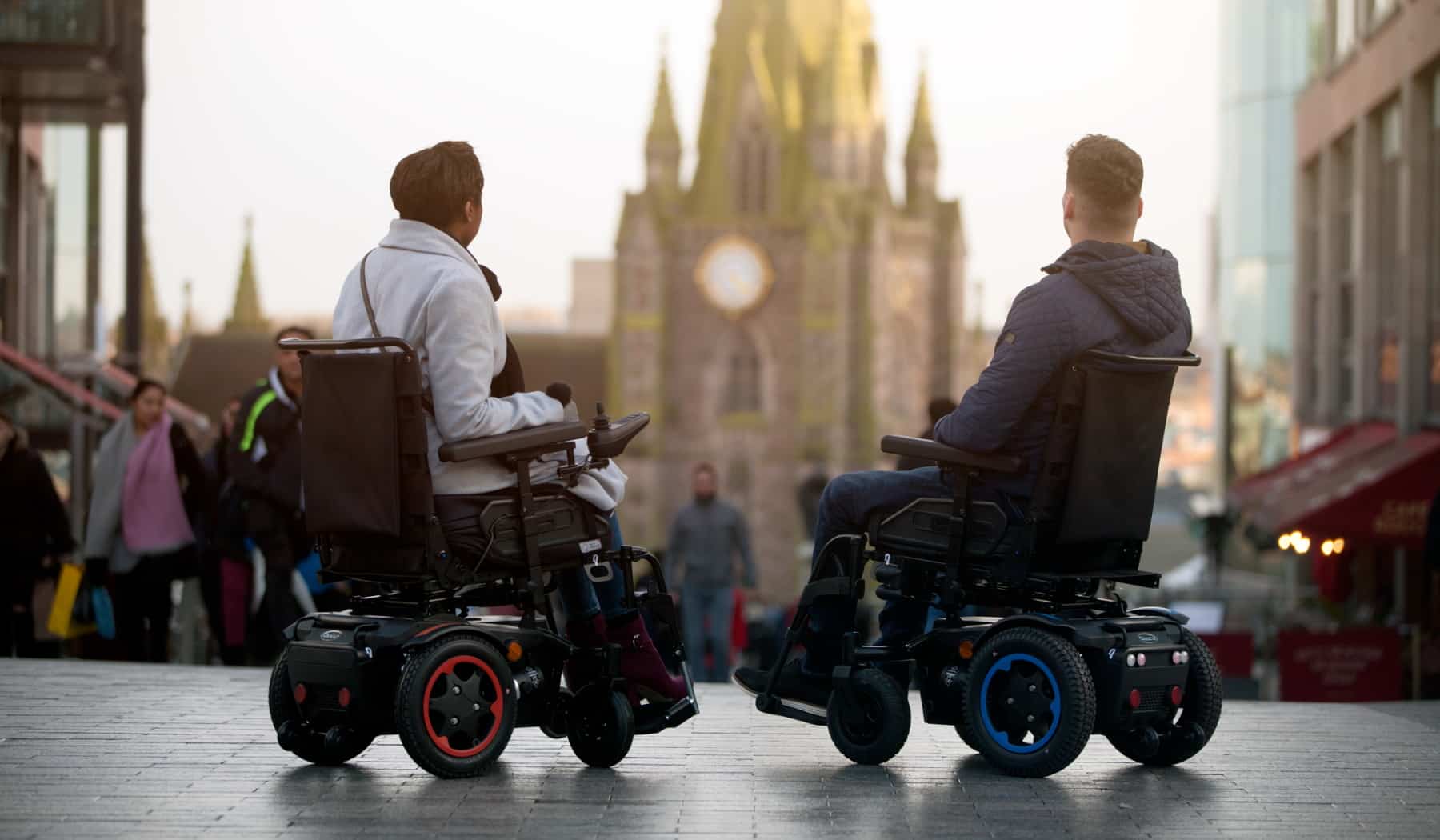
Free Funding: Spinal Cord Injury Counselling
Across most areas of England and Wales, we can apply for specialist SCI counselling for individuals experiencing significant daily challenges who require a carer. Eligible clients must be over 18 and reside in England or Wales to apply for this funding.
Criteria
The free funding criteria are based on one or more of the below situations:
Complete or New SCI
We can secure specialist spinal cord injury counselling for those with a complete SCI or a recently acquired SCI with low daily living standards within most of England and Wales.
Incomplete SCI
For individuals with an incomplete SCI acquired over 12 months ago and do not have a full-time carer, it is necessary to seek support through local mental health services referred by their GP.
However, it is often the case that these local services find such clients do not meet their criteria and subsequently discharge them.
Should local services deem these individuals unsuitable, we are prepared to assist in making a free funding application for specialist spinal cord injury counselling.
Application Process
Upon expressing interest in our SCI counselling services, clients are quickly scheduled for an assessment session within seven days.
This initial meeting is essential as it allows us to understand each client’s specific challenges and needs, creating an empathetic and supportive environment that facilitates therapeutic progress.
Following the assessment, our dedicated team applies for free funding on behalf of the client. We manage this process meticulously to ensure it is seamless and stress-free, relieving our clients of additional administrative burdens.
Counselling sessions are typically scheduled to commence within 12 weeks of the assessment and funding approval, although this timeline can vary by region.
Through this funded support and our dedicated services, we are committed to providing a nurturing, empathetic, and practical counselling experience, helping individuals with a SCI navigate their path towards emotional healing, resilience, and empowerment.
Free Funding
Applications 18+
Most regions in England and
Wales
Free Assessment Session
♣ New SCI
(complete or incomplete)
♣ New or long-term complete
SCI
♣ Discharged as unsuitable for
local mental health service.
Contact us to find out more

Self-Paying: Accessible and Prompt Spinal Cord Injury Counselling
Choosing to self-pay allows you to begin your SCI counselling journey typically within a week, providing immediate support when it’s most needed. Additionally, for those awaiting approval for free funding, opting for self-pay enables you to start counselling without delay, ensuring continuous care and support.
Read more
In line with our mission to deliver exceptional spinal cord injury counselling, we recognise the crucial importance of affordability.
Self-paying clients across the UK can access our specialist SCI counselling services.
To make our support more accessible, we have substantially subsidised our self-pay plans. This approach reflects our deep commitment to making SCI counselling available to a broader audience, regardless of financial circumstances.
Our subsidised rates are thoughtfully designed with your needs in mind: an introductory session is available for £50, followed by packages of three sessions for £180. These rates are intended to alleviate financial pressure on our clients.
Financial constraints should not prevent anyone from accessing the support and guidance needed to manage SCI effectively. We aim to enable more individuals to benefit from our professional, empathetic, and specialised counselling services.
Through this self-pay option, we strive to make a significant and positive impact in the lives of those living with a SCI, offering them the support they need at an affordable and accessible price.

Our Mission
We deeply understand how the stigma attached to disabilities and mental health issues can intensify the struggles faced by those with a spinal cord injury (SCI). It’s a journey that can feel isolating and challenging, but you’re not alone.
Read more
Our spinal cord injury counselling services are dedicated to breaking down these barriers. Our service offers understanding and acceptance – a place where your thoughts and emotions are heard and truly understood. Here, you can share openly without fear of judgement, helping you to overcome internalised stigma and embrace self-acceptance.
Our counselling is tailored just for you. We focus on aiding your psychological adjustment, easing the uncertainties, and fostering a positive self-image and self-esteem. You’ll find support in combatting isolation and navigating the fears and societal stigmas often accompanying an SCI.
Remember, this journey is yours, and we are here to walk it with you every step of the way.
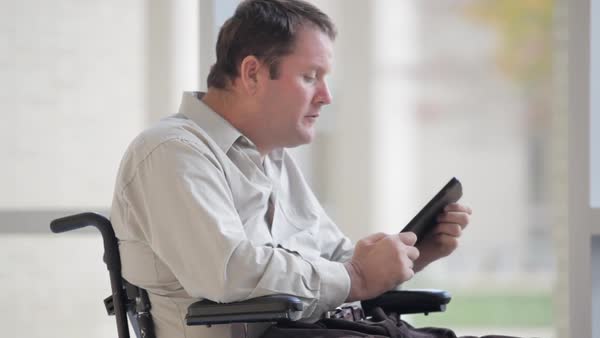
Testimonials and Reviews
These testimonials and success stories illustrate the transformative impact of specialist spinal cord injury counselling, emphasising the potential for positive change and growth in the lives of individuals with all forms of SCI.

Depression & Anxiety
Depression and Anxiety in Spinal Cord Injury (SCI): How Specialist Counselling Can Help
Depression and anxiety are common and significant challenges for individuals with spinal cord injuries (SCI). The physical and lifestyle changes, along with the emotional impact of such a life-altering event, can lead to these mental health conditions. Specialist SCI counselling is tailored to address these specific issues, providing targeted support and therapeutic interventions.
Understanding and Validation: Specialist SCI counselling offers a deep understanding of the unique challenges faced by individuals with spinal cord injuries. This understanding leads to a validating environment where clients feel seen and heard in their experiences, which is crucial for managing depression and anxiety.
Tailored Therapeutic Approaches: Counsellors skilled in SCI issues employ specific therapeutic techniques suited to the individual’s needs. These might include cognitive-behavioural therapy to challenge negative thought patterns, mindfulness to manage anxiety or other approaches that have been proven effective in such contexts.
Managing Emotional Responses: Depression and anxiety often stem from the emotional response to the injury and its consequences. Counselling helps in processing these emotions, teaching coping mechanisms to deal with feelings of loss, grief, or frustration.
Building Coping Strategies: Counselling equips individuals with practical strategies to manage symptoms of depression and anxiety. These strategies are tailored to the physical and emotional realities of living with an SCI, ensuring they are realistic and effective.
Enhancing Self-esteem and Empowerment: Through counselling, individuals are encouraged to rebuild their self-esteem and find new ways to feel empowered in their lives. This process is crucial for combatting depression and anxiety, as it fosters a sense of control and purpose.
Social and Relational Support: Counsellors can also guide clients in navigating changes in relationships and social dynamics, which can be sources of anxiety and depression. This includes developing new ways of connecting with others and maintaining a supportive social network.
Goal Setting and Future Planning: Focusing on future goals and planning can be particularly therapeutic for individuals with SCI, providing hope and direction, which are vital for combating feelings of depression and anxiety.
In conclusion, specialist SCI counselling offers a comprehensive, empathetic, and effective approach to managing depression and anxiety in individuals with spinal cord injuries. By addressing the unique psychological and emotional challenges associated with SCI, this counselling facilitates a path towards improved mental health and overall well-being.
Life Changes
The onset of a spinal cord injury (SCI) invariably brings about profound life changes, impacting every aspect of an individual’s existence. These physical, emotional, social, and professional changes often require significant adjustments. Counselling is pivotal in helping individuals navigate these changes, providing support and guidance through this challenging transition.
Physical Adjustments: An SCI often results in a varying degree of physical disability, which can necessitate changes in daily routines, living spaces, and lifestyle. Counselling helps individuals accept these physical changes, fostering acceptance and adaptation strategies.
Emotional Support: The emotional impact of an SCI can be overwhelming. Counselling provides a safe space to express grief, anger, or loss, helping individuals process these emotions healthily.
Social Relationships: Changes in physical ability can affect social dynamics. Individuals might feel isolated or struggle with their changing roles in personal relationships. Counselling assists in developing new ways of connecting and maintaining relationships and in building a supportive social network.
Professional and Educational Aspirations: An SCI can alter career paths or educational goals. Counsellors can support clients in exploring new opportunities, adapting career goals, and finding ways to continue or modify their professional or academic pursuits.
Coping with Dependence: Adjusting to increased dependence on others for daily activities can be challenging. Counselling helps manage these feelings of dependency, promoting a sense of autonomy and control within new limitations.
Adapting to New Routines: Establishing new routines and habits is essential for adapting to life post-injury. Counselling offers strategies for creating structure and fostering a sense of normalcy and stability.
Building Resilience and Self-esteem: Rebuilding and developing resilience is vital in adapting to life after an SCI. Counselling encourages personal growth, empowerment, and the discovery of new strengths and capabilities.
In summary, counselling provides comprehensive support in addressing the multifaceted life changes brought about by a spinal cord injury. It equips individuals with the tools and emotional strength needed to adapt to their new reality, promoting well-being and quality of life in the face of these profound changes.
PTSD
Post-Traumatic Stress Disorder (PTSD) is a significant concern for many individuals who have experienced a spinal cord injury. The trauma associated with such an injury, along with the drastic life changes that follow, can lead to PTSD, impacting both mental and physical recovery.
Counselling is a vital tool in addressing and managing PTSD symptoms in the context of spinal cord injuries. It offers a supportive and confidential space for individuals to process their experiences, understand their emotions, and develop effective coping strategies. Key benefits of counselling in this context include:
Trauma Processing: Counselling helps individuals work through their injury’s trauma, aiding in emotional healing and mental well-being.
Coping Mechanism Development: It equips those with spinal cord injuries with practical tools to manage PTSD symptoms like anxiety, flashbacks, and emotional distress, facilitating a smoother rehabilitation process.
Emotional Support: Regular counselling sessions provide ongoing emotional support, helping to build resilience, self-esteem, and a more positive outlook on life.
Physical Rehabilitation Enhancement: By addressing the psychological impacts of the injury, counselling can significantly contribute to the effectiveness of physical rehabilitation efforts.
Reintegration into Daily Life: Counselling supports individuals in regaining a sense of normalcy, assisting them in navigating their return to social, professional, and personal activities post-injury.
In essence, counselling for individuals with spinal cord injuries who are experiencing PTSD is critical. It goes beyond just treating the symptoms, offering a holistic approach to recovery that encompasses both mental and physical health.
Adjustment Disorders
Adjustment Disorders in the Context of Spinal Cord Injuries
Adjustment disorders are a prevalent mental health concern for individuals who have experienced a spinal cord injury. These disorders arise as a response to the significant life changes and challenges brought on by the injury. Unlike other mental health issues that might have a more gradual onset, adjustment disorders typically occur soon after the injury and are directly related to the struggle to cope with its immediate consequences.
Symptoms of adjustment disorders in the context of spinal cord injuries can vary widely but often include:
Depressive Symptoms: Feelings of sadness, hopelessness, and a lack of enjoyment in once pleasurable activities.
Anxiety: Persistent worries about the future, the impact of the injury on personal life and relationships, and concerns about medical complications or dependency.
Difficulty in Coping: Struggling to adapt to new physical limitations and lifestyle changes, leading to feelings of frustration and helplessness.
Withdrawal: Tendency to withdraw from social interactions, activities, or responsibilities which were part of one’s life before the injury.
These symptoms can significantly hinder rehabilitation and affect the overall quality of life. It is crucial for individuals facing spinal cord injuries to receive appropriate support and counselling to address these adjustment issues. Professional counselling can provide strategies to cope with the changes, foster resilience, and support the development of new ways to find meaning and satisfaction in life post-injury.
Recognising and treating adjustment disorders as a part of spinal cord injury counselling is essential for facilitating a more comprehensive and effective recovery, ensuring that both the emotional and physical aspects of the injury are addressed.
Carers
Caring for a loved one with a spinal cord injury is a labour of love, but it can also bring about a unique set of challenges for caregivers.
The role of a caregiver is multifaceted, encompassing physical, emotional, and logistical responsibilities. We understand the significant impact that caregiving can have on your well-being.
Our counselling for caregivers is here to provide you with the support and guidance you need to navigate this journey with resilience and compassion.

Mobile
01932881849
Self-Pay
Carers
Free Funding
Organisations
Our Posts
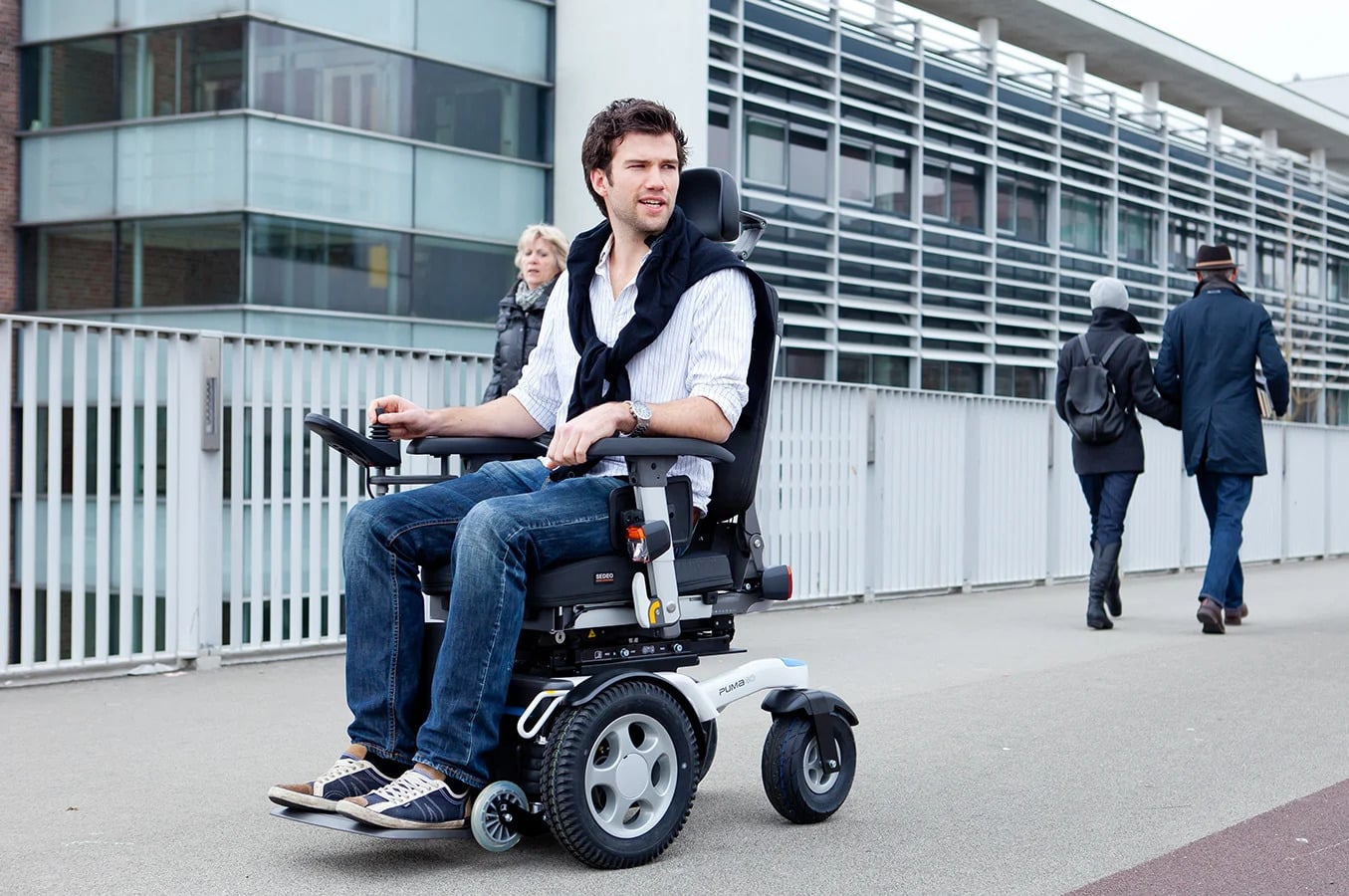
Counselling Services
If your disability or long-term condition is not within our services below, contact us as I am sure we can help.
Specialist Spinal Cord Injury Counselling for Adults
"Empathetic and Expert Spinal Cord Injury Counselling: Therapy with Understanding"
At DisabilityPlus, we offer a truly unique and empathetic approach to spinal cord injury counselling led by highly qualified psychologists who personally understand the challenges and complexities of living with a spinal cord injury. This personal experience equips our psychologist with unparalleled insight and empathy, ensuring that every session is grounded in genuine understanding and tailored support. We are proud to offer both self-paid and free funding options for our clients in England and Wales, making our specialised services accessible to all who need them.
By choosing our service, individuals gain not only professional therapeutic support but also a compassionate partnership that recognises and addresses the full spectrum of emotional, psychological, and practical challenges associated with spinal cord injuries.

Specialist
Understanding the complex nature of spinal cord injuries (SCI) is crucial for comprehending the holistic approach required for recovery.
More than just a physical ailment, SCI often carries profound emotional and psychological ramifications. Recognising the significance of mental health in the aftermath of such injuries is the first step towards a comprehensive recovery plan.
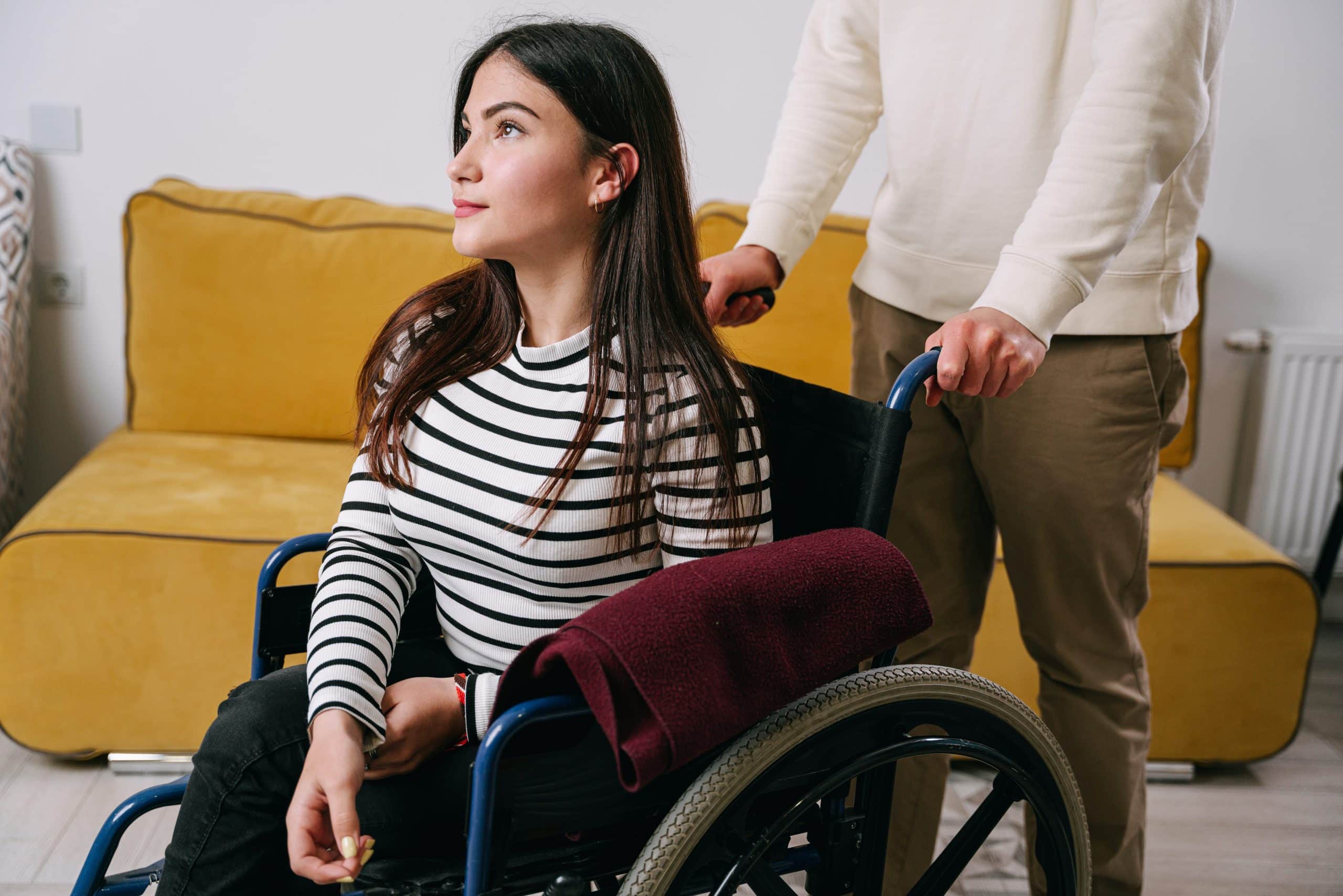
Emotional Impact
The initial shock and denial following an SCI can be overwhelming, plunging individuals into a tumultuous sea of emotions. This phase is critical, setting the stage for psychological resilience or vulnerability.
As time progresses, the enduring impact of SCI on mental health becomes apparent. Depression, anxiety, and PTSD are not uncommon, highlighting the need for specialist mental health support.

Common Challenges We Support you with
⇒ Chronic Pain
⇒ Abelism/ Discrimination
⇒ Insomnia
⇒ Eating Issues
⇒ Worries about the future
⇒ Financial Strain
⇒ Employment Issues
⇒ Communication
⇒ Carer Problems
⇒ Physical Challenges
⇒ Memory Retention
⇒ Social Isolation
⇒ Healthcare Challenges
⇒ Access to Services

Mental Health Issues We Work with Daily
⇒ Depression
⇒ Generalised Anxiety
⇒ Social Anxiety
⇒ Post Traumatic Stress
⇒ Low Self-esteem
⇒ Emotional Regulation
⇒ Anger
⇒ Psychosis
⇒ Stress
⇒ Grief and Loss
⇒ OCD
⇒ ADHD
⇒ Self-Harm
⇒ Suicidal Thoughts

Our Spinal Cord Injury Counselling
What is SCI Counselling? – Spinal Cord Injury Counselling is a tailored therapeutic approach designed to address the unique emotional and psychological needs of individuals who have suffered an SCI.
The Role of a Counsellor in SCI Recovery – Our psychologist acts as a guiding light, providing emotional support, coping strategies, and a safe space for expression and healing.
Coping Strategies – Learning to navigate the new realities of life post-SCI is pivotal. Counselling equips individuals with the tools needed for this journey.
The ultimate goal of SCI counselling is to foster mental well-being where individuals feel supported, resilient, and hopeful.

Free Funding: Spinal Cord Injury Counselling
Across many areas of England and Wales, we can apply for specialist SCI counselling for individuals experiencing significant daily challenges who require a carer. Eligible clients must be over 18 and reside in England or Wales to apply for this funding.
Criteria
The free funding criteria are based on one or more of the below situations:
Complete or New SCI
We can secure specialist spinal cord injury counselling for those with a complete SCI or a recently acquired SCI with low daily living standards within most of England and Wales.
Incomplete SCI
For individuals with an incomplete SCI acquired over 12 months ago and do not have a full-time carer, it is necessary to seek support through local mental health services referred by their GP.
However, it is often the case that these local services find such clients do not meet their criteria and subsequently discharge them.
Should local services deem these individuals unsuitable, we are prepared to assist in making a free funding application for specialist spinal cord injury counselling.
Application Process
Upon expressing interest in our SCI counselling services, clients are quickly scheduled for an assessment session within seven days.
This initial meeting is essential as it allows us to understand each client’s specific challenges and needs, creating an empathetic and supportive environment that facilitates therapeutic progress.
Following the assessment, our dedicated team applies for free funding on behalf of the client. We manage this process meticulously to ensure it is seamless and stress-free, relieving our clients of additional administrative burdens.
Counselling sessions are typically scheduled to commence within 12 weeks of the assessment and funding approval, although this timeline can vary by region.
Through this funded support and our dedicated services, we are committed to providing a nurturing, empathetic, and practical counselling experience, helping individuals with a SCI navigate their path towards emotional healing, resilience, and empowerment.

Self-Paying: Accessible and Prompt Spinal Cord Injury Counselling
Choosing to self-pay allows you to begin your SCI counselling journey typically within a week, providing immediate support when it’s most needed. Additionally, for those awaiting approval for free funding, opting for self-pay enables you to start counselling without delay, ensuring continuous care and support.
Read more
In line with our mission to deliver exceptional spinal cord injury counselling, we recognise the crucial importance of affordability.
Self-paying clients across the UK can access our specialist SCI counselling services.
To make our support more accessible, we have substantially subsidised our self-pay plans. This approach reflects our deep commitment to making SCI counselling available to a broader audience, regardless of financial circumstances.
Our subsidised rates are thoughtfully designed with your needs in mind: an introductory session is available for £50, followed by packages of three sessions for £180. These rates are intended to alleviate financial pressure on our clients.
Financial constraints should not prevent anyone from accessing the support and guidance needed to manage SCI effectively. We aim to enable more individuals to benefit from our professional, empathetic, and specialised counselling services.
Through this self-pay option, we strive to make a significant and positive impact in the lives of those living with a SCI, offering them the support they need at an affordable and accessible price.
Free Funding
Applications 18+
Most regions in England and
Wales
Free Assessment Session
Criteria for free funding
application are one or more
of the following:
♣ New SCI
(complete or incomplete)
♣ New or long-term complete
SCI
♣ Discharged as unsuitable for
local mental health service.
Contact us to find out more
Other Referrals
♣ Professional Organisations
♣ Mental Health Providers
♣ Friends & Family
♣ Carers
♣ GP’s
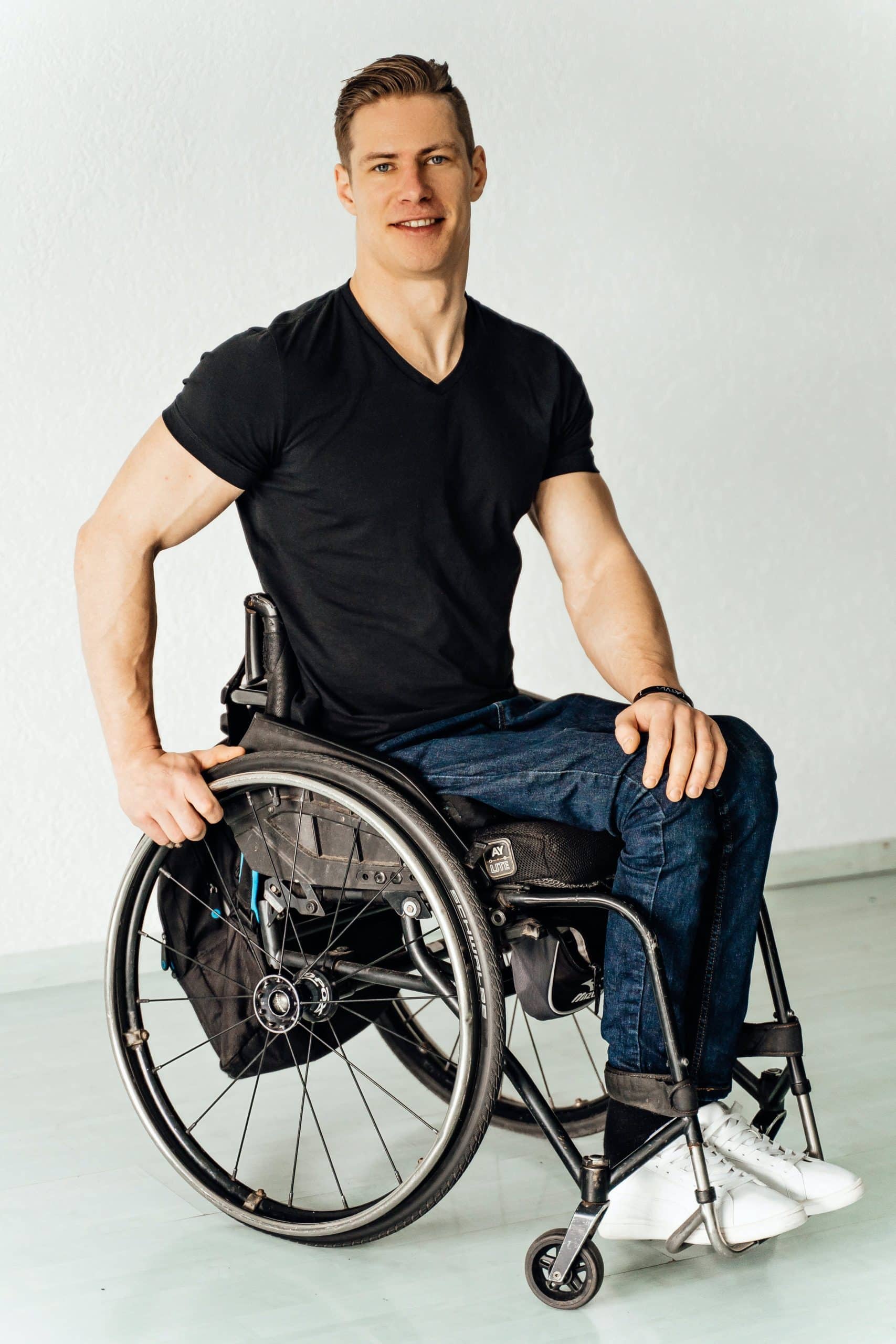
Comprehensive Support for All Types of Spinal Cord Injuries: Understanding Your Journey.
Our spinal cord injury counselling service is inclusive and comprehensive, supporting individuals with all types of spinal cord injuries. We understand that each injury is unique, and so too, are the circumstances and experiences surrounding it. This includes providing empathetic support for the trauma associated with how the injury was sustained.
Whether the injury resulted from an accident, medical condition, or any other cause, the psychological impact can be profound. Our counselling addresses not just the physical aspects of the injury but also the emotional and psychological trauma that often accompanies it. We offer a safe and understanding space where individuals can explore and process these complex emotions.
Our approach is holistic, acknowledging that the journey to recovery and adaptation involves both the body and the mind. By addressing the trauma and its aftermath, we aim to facilitate a more comprehensive healing process, supporting our clients in coming to terms with their injury and its impact on their life. Our goal is to help each individual find strength and resilience promoting self empowerment and well-being.
Specialists
In our service, we provide support to our clients through the expertise of psychologists, who play a crucial role in addressing the complex needs associated with spinal cord injuries. It’s essential to understand the distinction between psychologists and counsellors, as each offers different types of support.
Psychologists are highly trained professionals, often with a doctoral degree in psychology. They are equipped to diagnose and treat a wide range of mental health issues, employing various therapeutic techniques.
Their training allows them to deeply understand the psychological impact of life-changing events, which means they offer more specialised therapy tailored to these unique challenges.
Counsellors, on the other hand, typically focus on providing support and guidance to help clients navigate through personal or psychological challenges.
By choosing our service, clients benefit from the deep psychological expertise of our psychologists, who not only understand the clinical aspects of mental health but also bring personal insight and empathy from their own experiences with spinal cord injuries.
Our Mission:
We deeply understand how the stigma attached to disabilities and mental health issues can intensify the struggles faced by those with a spinal cord injury (SCI). It’s a journey that can feel isolating and challenging, but you’re not alone.
In our spinal cord injury counselling services, we’re dedicated to breaking down these barriers. Our servic offers understanding and acceptance – a place where your thoughts and emotions are not just heard, but truly understood. Here, you can share openly without fear of judgement, helping you to overcome internalised stigma and embrace self-acceptance.
Our counselling is tailored just for you. We focus on aiding your psychological adjustment, easing the uncertainties, and fostering a positive self-image and self-esteem. You’ll find support in combatting isolation and guidance in navigating the fears and societal stigmas that often accompany an SCI.
Remember, this journey is yours, and we are here to walk it with you, every step of the way.

The Complexities of Caregiving:
Caring for a loved one with a spinal cord injury is a labour of love, but it can also bring about a unique set of challenges for caregivers.
The role of a caregiver is multifaceted, encompassing physical, emotional, and logistical responsibilities. We understand the significant impact that caregiving can have on your well-being.
Our counselling for caregivers is here to provide you with the support and guidance you need to navigate this journey with resilience and compassion.
Testimonials
These testimonials and success stories illustrate the transformative impact of spinal cord injury counselling, emphasising the potential for positive change and growth in the lives of individuals with all forms of SCI.
“I found solace through DisabilityPlus’s counselling. Their unique insight into Quadriplegia made me feel truly understood.” – Alex, SCI Individual.
“Counseling helped me navigate my caregiver role better. DisabilityPlus’s expertise was invaluable.” – Ryan, Caregiver.
“My partner’s emotional well-being improved immensely after counselling with DisabilityPlus. It’s been a transformative journey.” – Maya, Partner.
“I was sceptical initially, but DisabilityPlus’s counselling exceeded my expectations. They truly get what we’re going through.” – Sarah, SCI Individual.
Free Funding
Based on Your Exceptional Circumstances
♣ Applications 18+
♣ Most regions in the UK
♣ New SCI or Quadriplegia
♣ Free Assessment Session
Other Referrals
♣ Professional Organisations
♣ Mental Health Providers
♣ Friends & Family
♣ Carers
♣ GP’s
Our Posts

Mental Health Counselling for Adults with a Spinal Cord Injury
Anxiety & Depression
Depression and Anxiety in Spinal Cord Injury (SCI): How Specialist Counselling Can Help
Depression and anxiety are common and significant challenges for individuals with spinal cord injuries (SCI). The physical and lifestyle changes, along with the emotional impact of such a life-altering event, can lead to these mental health conditions. Specialist SCI counselling is tailored to address these specific issues, providing targeted support and therapeutic interventions.
Understanding and Validation: Specialist SCI counselling offers a deep understanding of the unique challenges faced by individuals with spinal cord injuries. This understanding leads to a validating environment where clients feel seen and heard in their experiences, which is crucial for managing depression and anxiety.
Tailored Therapeutic Approaches: Counsellors skilled in SCI issues employ specific therapeutic techniques suited to the individual’s needs. These might include cognitive-behavioural therapy to challenge negative thought patterns, mindfulness to manage anxiety or other approaches that have been proven effective in such contexts.
Managing Emotional Responses: Depression and anxiety often stem from the emotional response to the injury and its consequences. Counselling helps in processing these emotions, teaching coping mechanisms to deal with feelings of loss, grief, or frustration.
Building Coping Strategies: Counselling equips individuals with practical strategies to manage symptoms of depression and anxiety. These strategies are tailored to the physical and emotional realities of living with an SCI, ensuring they are realistic and effective.
Enhancing Self-esteem and Empowerment: Through counselling, individuals are encouraged to rebuild their self-esteem and find new ways to feel empowered in their lives. This process is crucial for combatting depression and anxiety, as it fosters a sense of control and purpose.
Social and Relational Support: Counsellors can also guide clients in navigating changes in relationships and social dynamics, which can be sources of anxiety and depression. This includes developing new ways of connecting with others and maintaining a supportive social network.
Goal Setting and Future Planning: Focusing on future goals and planning can be particularly therapeutic for individuals with SCI, providing hope and direction, which are vital for combating feelings of depression and anxiety.
In conclusion, specialist SCI counselling offers a comprehensive, empathetic, and effective approach to managing depression and anxiety in individuals with spinal cord injuries. By addressing the unique psychological and emotional challenges associated with SCI, this counselling facilitates a path towards improved mental health and overall well-being.
Life Changes?
The onset of a spinal cord injury (SCI) invariably brings about profound life changes, impacting every aspect of an individual’s existence. These physical, emotional, social, and professional changes often require significant adjustments. Counselling is pivotal in helping individuals navigate these changes, providing support and guidance through this challenging transition.
Physical Adjustments: An SCI often results in a varying degree of physical disability, which can necessitate changes in daily routines, living spaces, and lifestyle. Counselling helps individuals accept these physical changes, fostering acceptance and adaptation strategies.
Emotional Support: The emotional impact of an SCI can be overwhelming. Counselling provides a safe space to express grief, anger, or loss, helping individuals process these emotions healthily.
Social Relationships: Changes in physical ability can affect social dynamics. Individuals might feel isolated or struggle with their changing roles in personal relationships. Counselling assists in developing new ways of connecting and maintaining relationships and in building a supportive social network.
Professional and Educational Aspirations: An SCI can alter career paths or educational goals. Counsellors can support clients in exploring new opportunities, adapting career goals, and finding ways to continue or modify their professional or academic pursuits.
Coping with Dependence: Adjusting to increased dependence on others for daily activities can be challenging. Counselling helps manage these feelings of dependency, promoting a sense of autonomy and control within new limitations.
Adapting to New Routines: Establishing new routines and habits is essential for adapting to life post-injury. Counselling offers strategies for creating structure and fostering a sense of normalcy and stability.
Building Resilience and Self-esteem: Rebuilding and developing resilience is vital in adapting to life after an SCI. Counselling encourages personal growth, empowerment, and the discovery of new strengths and capabilities.
In summary, counselling provides comprehensive support in addressing the multifaceted life changes brought about by a spinal cord injury. It equips individuals with the tools and emotional strength needed to adapt to their new reality, promoting well-being and quality of life in the face of these profound changes.
Post Traumatic Stress
Post-Traumatic Stress Disorder (PTSD) is a significant concern for many individuals who have experienced a spinal cord injury. The trauma associated with such an injury, along with the drastic life changes that follow, can lead to PTSD, impacting both mental and physical recovery.
Counselling is a vital tool in addressing and managing PTSD symptoms in the context of spinal cord injuries. It offers a supportive and confidential space for individuals to process their experiences, understand their emotions, and develop effective coping strategies. Key benefits of counselling in this context include:
Trauma Processing: Counselling helps individuals work through their injury’s trauma, aiding in emotional healing and mental well-being.
Coping Mechanism Development: It equips those with spinal cord injuries with practical tools to manage PTSD symptoms like anxiety, flashbacks, and emotional distress, facilitating a smoother rehabilitation process.
Emotional Support: Regular counselling sessions provide ongoing emotional support, helping to build resilience, self-esteem, and a more positive outlook on life.
Physical Rehabilitation Enhancement: By addressing the psychological impacts of the injury, counselling can significantly contribute to the effectiveness of physical rehabilitation efforts.
Reintegration into Daily Life: Counselling supports individuals in regaining a sense of normalcy, assisting them in navigating their return to social, professional, and personal activities post-injury.
In essence, counselling for individuals with spinal cord injuries who are experiencing PTSD is critical. It goes beyond just treating the symptoms, offering a holistic approach to recovery that encompasses both mental and physical health.
Adjustment Disorders
Adjustment Disorders in the Context of Spinal Cord Injuries
Adjustment disorders are a prevalent mental health concern for individuals who have experienced a spinal cord injury. These disorders arise as a response to the significant life changes and challenges brought on by the injury. Unlike other mental health issues that might have a more gradual onset, adjustment disorders typically occur soon after the injury and are directly related to the struggle to cope with its immediate consequences.
Symptoms of adjustment disorders in the context of spinal cord injuries can vary widely but often include:
Depressive Symptoms: Feelings of sadness, hopelessness, and a lack of enjoyment in once pleasurable activities.
Anxiety: Persistent worries about the future, the impact of the injury on personal life and relationships, and concerns about medical complications or dependency.
Difficulty in Coping: Struggling to adapt to new physical limitations and lifestyle changes, leading to feelings of frustration and helplessness.
Withdrawal: Tendency to withdraw from social interactions, activities, or responsibilities which were part of one’s life before the injury.
These symptoms can significantly hinder rehabilitation and affect the overall quality of life. It is crucial for individuals facing spinal cord injuries to receive appropriate support and counselling to address these adjustment issues. Professional counselling can provide strategies to cope with the changes, foster resilience, and support the development of new ways to find meaning and satisfaction in life post-injury.
Recognising and treating adjustment disorders as a part of spinal cord injury counselling is essential for facilitating a more comprehensive and effective recovery, ensuring that both the emotional and physical aspects of the injury are addressed.
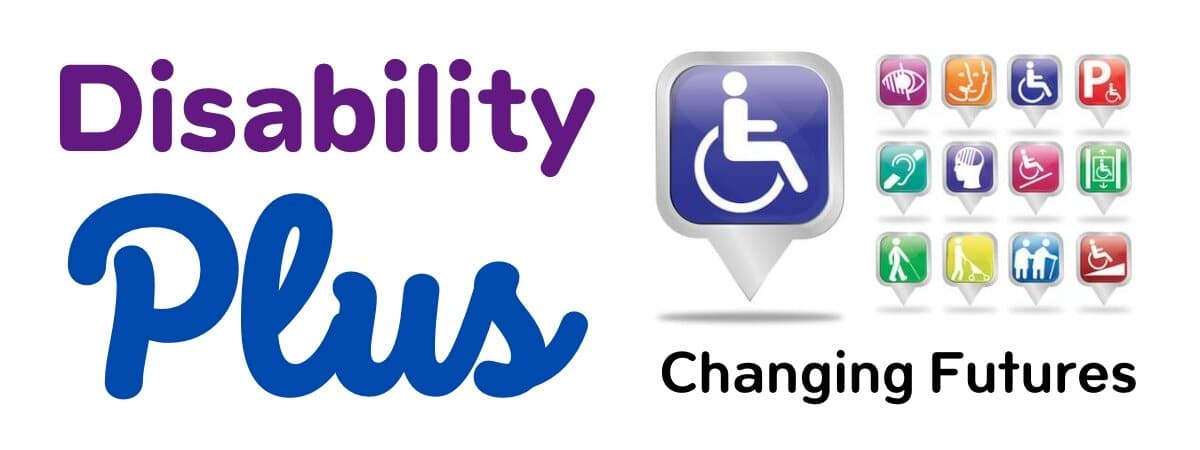

Support for you from Spinal Cord Injury Organisations

Information
If you would like to know more about a spinal cord injury including classifications & grading we have a webpage dedicated to you.

For Practical Support
SIA is the national Spinal Injuries Association, they can help you with multi-functionality support.

Aspire
Aspire provides practical help to people who have been paralysed by Spinal Cord Injury, supporting them from injury to independence

Specialist Counselling & Psychotherapy Services
Showing 23 therapies, if yours is not listed contact us to see if we can support you.
Pain & Balance
Vestibular
Tinnitus
Sensory Loss
Sight Loss
BSL Counselling
Hearing Loss
Accidents & Injuries
Road Traffic
Brain Injuries
Spinal Cord
Quadriplegia
Limb Loss
Genetic & Hereditary Disorders
Cerebral Palsy
Quadriplegia
Dystrophy
Downs Syndrome
Multiple Sclerosis
Brittle Bones (OI)
Rare Genetic Disorders
Ataxia
Spina Bifida
Degenerative Diseases
Motor Neurone
Parkinson's
Neurological Conditions
Epilepsy
Epilepsy Coaching
Autism (ASD)
Selective Mutism
Specialist Spinal Cord Injury Counselling for Adults
“Empathetic and Expert Spinal Cord Injury Counselling: Therapy with Understanding”
At DisabilityPlus, we offer a truly unique and empathetic approach to spinal cord injury counselling led by highly qualified psychologists who personally understand the challenges and complexities of living with a spinal cord injury.
This personal experience equips our psychologist with unparalleled insight and empathy, ensuring that every session is grounded in genuine understanding and tailored support. We are proud to offer both self-paid and free funding options for our clients in England and Wales, making our specialised services accessible to all who need them.
By choosing our service, individuals gain not only professional therapeutic support but also a compassionate partnership that recognises and addresses the full spectrum of emotional, psychological, and practical challenges associated with spinal cord injuries.


Specialist
Understanding the complex nature of spinal cord injuries (SCI) is crucial for comprehending the holistic approach required for recovery.
More than just a physical ailment, SCI often carries profound emotional and psychological ramifications. Recognising the significance of mental health in the aftermath of such injuries is the first step towards a comprehensive recovery plan.

Emotional Impact
The initial shock and denial following an SCI can be overwhelming, plunging individuals into a tumultuous sea of emotions. This phase is critical, setting the stage for psychological resilience or vulnerability.
As time progresses, the enduring impact of SCI on mental health becomes apparent. Depression, anxiety, and PTSD are not uncommon, highlighting the need for specialist mental health support.


Common Challenges We Support you with
⇒ Chronic Pain
⇒ Abelism/ Discrimination
⇒ Insomnia
⇒ Eating Issues
⇒ Worries about the future
⇒ Financial Strain
⇒ Employment Issues
⇒ Communication
⇒ Carer Problems
⇒ Physical Challenges
⇒ Memory Retention
⇒ Social Isolation
⇒ Healthcare Challenges
⇒ Access to Services

Mental Health Issues We Work with Daily
⇒ Depression
⇒ Generalised Anxiety
⇒ Social Anxiety
⇒ Post Traumatic Stress
⇒ Low Self-esteem
⇒ Emotional Regulation
⇒ Anger
⇒ Psychosis
⇒ Stress
⇒ Grief and Loss
⇒ OCD
⇒ ADHD
⇒ Self-Harm
⇒ Suicidal Thoughts
Our Spinal Cord Injury Counselling
What is SCI Counselling? – Spinal Cord Injury Counselling is a tailored therapeutic approach designed to address the unique emotional and psychological needs of individuals who have suffered an SCI.
The Role of a Counsellor in SCI Recovery – Our psychologist acts as a guiding light, providing emotional support, coping strategies, and a safe space for expression and healing.
Coping Strategies – Learning to navigate the new realities of life post-SCI is pivotal. Counselling equips individuals with the tools needed for this journey.
The ultimate goal of SCI counselling is to foster mental well-being where individuals feel supported, resilient, and hopeful.

Free Spinal Cord Injury Counselling
A spinal cord injury is a multifaceted condition that requires a deep understanding of its physical and psychological impacts on individuals, which can, in turn, influence their mental well-being.
Complete or New SCI
In many parts of England and Wales, we can secure specialist spinal cord injury counselling for those with a complete SCI or a recently acquired SCI with low daily living standards.
You can self-refer by CLICKING HERE
Incomplete SCI
For individuals with an incomplete SCI acquired over 12 months ago and do not have a full-time carer, it is necessary to seek support through local mental health services referred by their GP.
However, local mental health services often conclude that such clients do not fit their criteria and discharge them.
If you have been discharged as unsuitable by the local service, we can make a free funding application for specialist support for people with incomplete SCIs.
You can self-refer by CLICKING HERE
Read more
When clients are referred to the local mental health service, they can significantly speed up the application process by informing the local mental health service about DisabilityPlus specialist spinal cord injury counselling service during their assessment.
This quickens the speed and efficiency with which we can support clients.
How are funding applications processed?
Upon showing interest in our counselling services, clients are promptly scheduled for an assessment session within seven days.
This initial meeting is crucial, as it allows us to grasp each client’s unique challenges and needs, fostering an environment of empathy and understanding and a step towards therapeutic progress.
Post-assessment, our team is responsible for applying for free funding on the client’s behalf.
This process is managed meticulously to ensure a seamless and stress-free experience for our clients and free them from additional administrative burdens.
Counselling sessions are typically set to begin within 12 weeks of assessment and approval (this can vary region by region).

Self-Paying: Accessible and Prompt Cerebral Palsy Counselling
Opting for self-pay means you can commence your counselling journey typically within a week, offering immediate support when you need it most. Furthermore, for those awaiting free funding approval, self-pay provides an opportunity to start counselling without delay, ensuring continuity of care and support.
In line with our mission to deliver exceptional cerebral palsy counselling, we are acutely aware of the importance of affordability.
Self-paid clients within the whole of the UK can take advantage of specialist counselling.
Read more
To make our services more accessible, we have substantially subsidised our self-paid plans. This approach reflects our deep commitment to making cerebral palsy counselling available to a wider audience, irrespective of financial circumstances.
Our subsidised rates are designed with your needs in mind: an introductory session for £50, followed by a package of three sessions for £180. These rates are set to reduce financial pressure for our clients.
We firmly believe that financial constraints should not hinder accessing the vital support and guidance necessary for managing cerebral palsy. We aim to enable a more significant number of individuals to benefit from our professional, empathetic, and specialist counselling services.
Through this self-pay option, we strive to make a meaningful and positive impact on the lives of people with cerebral palsy, offering them the support they need at an affordable and accessible price.
Free Funding
Applications 18+
Most regions in England and
Wales
Free Assessment Session
Criteria for free funding
application are one or more
of the following:
♣ New SCI
(complete or incomplete)
♣ New or long-term complete
SCI
♣ Discharged as unsuitable for
local mental health service.
Contact us to find out more
Comprehensive Support for All Types of Spinal Cord Injuries: Understanding Your Journey.
Our spinal cord injury counselling service is inclusive and comprehensive, supporting individuals with all types of spinal cord injuries. We understand that each injury is unique, and so too, are the circumstances and experiences surrounding it. This includes providing empathetic support for the trauma associated with how the injury was sustained.
Whether the injury resulted from an accident, medical condition, or any other cause, the psychological impact can be profound. Our counselling addresses not just the physical aspects of the injury but also the emotional and psychological trauma that often accompanies it. We offer a safe and understanding space where individuals can explore and process these complex emotions.
Our approach is holistic, acknowledging that the journey to recovery and adaptation involves both the body and the mind. By addressing the trauma and its aftermath, we aim to facilitate a more comprehensive healing process, supporting our clients in coming to terms with their injury and its impact on their life. Our goal is to help each individual find strength and resilience promoting self empowerment and well-being.

Specialists
In our service, we provide support to our clients through the expertise of psychologists, who play a crucial role in addressing the complex needs associated with spinal cord injuries. It’s essential to understand the distinction between psychologists and counsellors, as each offers different types of support.
Psychologists are highly trained professionals, often with a doctoral degree in psychology. They are equipped to diagnose and treat a wide range of mental health issues, employing various therapeutic techniques.
Their training allows them to deeply understand the psychological impact of life-changing events, which means they offer more specialised therapy tailored to these unique challenges.
Counsellors, on the other hand, typically focus on providing support and guidance to help clients navigate through personal or psychological challenges.
By choosing our service, clients benefit from the deep psychological expertise of our psychologists, who not only understand the clinical aspects of mental health but also bring personal insight and empathy from their own experiences with spinal cord injuries.

Our Mission:
We deeply understand how the stigma attached to disabilities and mental health issues can intensify the struggles faced by those with a spinal cord injury (SCI). It’s a journey that can feel isolating and challenging, but you’re not alone.
In our spinal cord injury counselling services, we’re dedicated to breaking down these barriers. Our servic offers understanding and acceptance – a place where your thoughts and emotions are not just heard, but truly understood. Here, you can share openly without fear of judgement, helping you to overcome internalised stigma and embrace self-acceptance.
Our counselling is tailored just for you. We focus on aiding your psychological adjustment, easing the uncertainties, and fostering a positive self-image and self-esteem. You’ll find support in combatting isolation and guidance in navigating the fears and societal stigmas that often accompany an SCI.
Remember, this journey is yours, and we are here to walk it with you, every step of the way.
Testimonials
These testimonials and success stories illustrate the transformative impact of spinal cord injury counselling, emphasising the potential for positive change and growth in the lives of individuals with all forms of SCI.
“I found solace through DisabilityPlus’s counselling. Their unique insight into Quadriplegia made me feel truly understood.” – Alex, SCI Individual.
“I was sceptical initially, but DisabilityPlus’s counselling exceeded my expectations. They truly get what we’re going through.” – Sarah, SCI Individual.
“Counseling helped me navigate my caregiver role better. DisabilityPlus’s expertise was invaluable.” – Ryan, Caregiver.
“My partner’s emotional well-being improved immensely after counselling with DisabilityPlus. It’s been a transformative journey.” – Maya, Partner.

Our Posts
Specialist Counselling & Psychotherapy Services
Showing 23 therapies, if yours is not listed contact us to see if we can support you.





